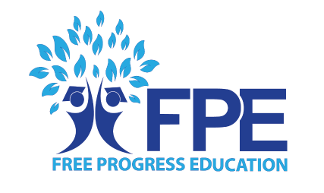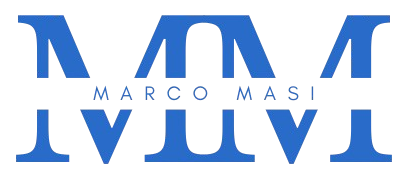
Introduction to the Free Progress University
Curiosity is one of the most deeply engraved psychological traits of the human species. The thirst for knowledge, discovery, and the creative impulse, which must not necessarily be connected to a desire for practical applications or a personal gain, was always a strong inner drive in human nature. The desire to research and develop creatively new insights of reality in a free environment that allows for individual free progress, lingers, despite all in the background of every academic system.
Unfortunately, however nowadays the economic reality is driven by an industrial and managerial mindset almost never allows for a free expression of one’s individual potentials in form of a study and research activity free from the bonds of a top-down hierarchical system that prescribes and imposes curricula and roadmaps that don’t match one’s own personal interests and hampers any real form of scientific or artistic self-expression.
Colleges and universities have become a huge regulated enterprise that aims at reducing everything to a collective uniformity which has become increasingly intolerant to diversity and ultimately to any real change. Novel approaches, original ideas, or intuitions that do not align with the mainstream are officially encouraged but, in fact, strongly repressed in academic departments. In modern academia, those who survive are those who adapt or become skillful in practicing internal political power games and don’t mind if they have to give up their innate inner drive for quest and knowledge. A good paid job or prestige is more or less unconsciously considered as an acceptable replacement.
This has led many brilliant and young minds to abandon the academy, looking elsewhere for more fulfilling and less suffocating environments were to express themselves.
Many even repress their natural curiosity and strive for knowledge or individual creative potential, pursuing more mundane and socially acceptable jobs or lifestyles, or finally forcing themselves to stay in a department working on research programs they don't really feel to be their own. Not without having to pay a price: stress, depression, burnout are no longer exceptional symptoms but normality in many research centers.
This state of affairs has also led to another symptomatic and widespread phenomenon. Those who are disappointed and do not attend a college or university, but have time and resources to dedicate themselves to an amateurish scientific activity without guidance and support from experienced figures and a study community, and promote nevertheless themselves to self-schooled experts, frequently fail and in some cases spiral into the so-called ‘crackpot’ category. Unfortunately, the Internet is filled with pseudo-science theories developed by people who dedicate all their energy to the advertisement of what they believe to be a ground-breaking theory. In most cases, these are cranks who lack any discrimination and simply don't know what they are talking about. The fact that this social phenomenon has become so widespread is not an accident, but a symptom of an academic system that has failed in opening itself to the true curious researchers and the serious and contemplative inquirer.
A Free Progress University (FPU) based on the Free Progress Education (FPE) paradigm wants to offer an alternative to the current close-minded academic universe, by allowing again the inner creative potential of the individual personality to progress freely without the impediments of an institutionalized academic straightjacket and yet preparing for high professional standards.

Its aim is to furnish a learning platform that offers the same and even better professional support than conventional universities, to all those who feel passionate about the subjects of a faculty and feel the urge to take up their own education by a self-directed and self-responsible learning path, and yet without being left alone.
In an FPU the creative potential of a freely progressing student is not bounded by exams but is encouraged by a self-initiated research activity or creative effort. Curriculums and syllabi are suggested and offered but nobody is forced to strictly follow them. Students are free to accept the parts of their interests and skip those parts which they don't feel to be essential for their progression. In an FPU mentors are not professors who judge and grade, but advisors that help students along their individualized and self-developed learning path. Mentors are not supposed just to teach a subject, but should, first of all, teach to learn and help students to evaluate themselves. According to an FPE model, everyone can choose where to place the emphasis along the learning pathway according to one’s own pace and development time, without having to obey orders and follow a subjective idea of ‘efficiency’ or ‘excellence’ imposed by an institution and an academic hierarchy.
At the same time, an FPU asks for dedication, effort, and first and foremost a self-disciplined and self-structured learning. While it allows for freedom of choice and expression that conventional academies would certainly not allow for, it asks also the student to take up much more responsible for his/her intellectual and creative growth. One of the basic principles of the FPE paradigm is that to increase freedom there must correspond also to an equal increase of responsibility and a greater readiness to self-organize one’s own labor without a teacher or professor telling them permanently what to do and how or when to do it. Put it bluntly, an FPU is not a place where people can hang out and lean back passively. You can take a look at the curricula and the textbooks to realize that what is going to be learned is the hard stuff that implies a long concentrated effort at the highest professional level.

But just this double-sided aspect is what makes an FPU so special and unique. On one side it allows for the greatest freedom and the liberation of the creative spirit of each one without trying to impose a hardwired concept or the ‘one size fits for all’ principle which plagues so much the modern educational institutions. On the other side, it achieves excellence by asking its members to take up a responsibility that not everyone is accustomed to dealing with.
The FPU is therefore not for everyone. It needs more maturity than students in a conventional school or university have. It is only for those who are determined in trying hard to become serious and decide to commit themselves to a program that will take several years of intense study. It is not for those who, being accustomed to ordinary schools and academia are not willing to take up responsibility for their own study path looking for someone telling them what and how to do things. It is for those who want to learn how to learn and then become able to go their own way without the need of teachers or professors or authorities who are supposed to know better. And especially it is for those who are not (or not only) looking for a job for making a living but are driven to their subject because of an inner drive to know, imagine, create and discover.
